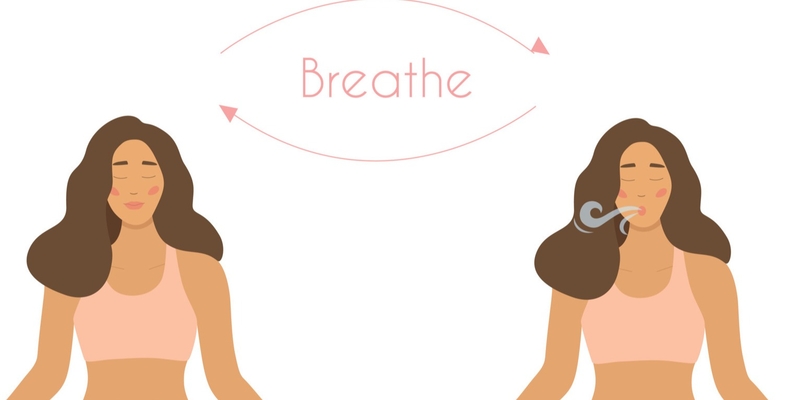Ever found yourself in a situation where your nose decides it's time for a surprise blood party? Don't worry; you're not alone. Though often alarming, nosebleeds are usually more of a nuisance than a cause for panic. In this guide, we'll delve into the causes of nosebleeds, offering a comprehensive understanding of the why, followed by a detailed exploration of practical ways to stop the crimson flow and tips to prevent it from happening too often.
Causes of Nosebleed
Before we jump into the methods to stop a nosebleed, let's take a moment to understand why our nasal passages might decide to unleash the red tide. The culprits can vary:
Dry Air Dilemma: Nosebleeds often enter during dry seasons, like winter. The lack of moisture in the air can irritate and dry out the inside of your nose, making it more susceptible to bleeds.
Nose Picking Pitfall: Admit it; many of us are guilty of nose exploration. However, this seemingly innocent habit can damage delicate blood vessels, paving the way for nosebleeds.
Trauma Troubles: Physical trauma to the nose, whether from a sports mishap or a clumsy encounter with a doorknob, is a frequent instigator of nosebleeds.
Infection Interference: Cold and sinus infections can turn your nasal passages into a battleground, irritating them and making them more prone to bleeding.
Allergies Aggravation: Constantly battling allergies means constant nose rubbing and sneezing, which, over time, can contribute to nosebleeds.
Underlying Medical Conditions: Health conditions such as hemophilia or other disorders affecting blood clotting can elevate the likelihood of experiencing nosebleeds.
Understanding the root cause is crucial in developing strategies to prevent nosebleeds.
How to Stop a Bloody Nose
Now, let's get down to business. When your nose decides to stage an unexpected blood exhibition, here are seven detailed and practical ways to halt the crimson cascade:
Pinch and Lean Forward
The classic move. Pinch your nostrils together just below the bony part of your nose and lean slightly forward. This applies pressure to the bleeding vessels and helps prevent blood from flowing down your throat, averting potential stomach discomfort.
Cold Compress Magic
Grab a cold compress or a bag of frozen peas wrapped in a thin cloth. Apply it to the bridge of your nose. The cold temperature constricts blood vessels, slowing down the bleeding.
Moisturize Your Nose
Combatting dry air is a key player in the game of preventing nosebleeds. Two straightforward yet effective methods for moisturizing your nasal passages include the use of a saline nasal spray or the application of a thin layer of petroleum jelly inside your nostrils. This dynamic duo creates a moisture barrier, making your nasal environment less prone to nosebleeds.
Avoid Tipping Your Head Back
When facing a nosebleed, the instinct to tilt your head back might kick in, but it's a move best resisted. Tipping your head backward can lead to blood flowing down your throat, introducing you to an unpleasant taste and potentially causing nausea.
Stay Calm and Breathe Through Your Mouth
Admittedly, staying calm during a nosebleed is easier said than done. However, panicking only exacerbates the situation. Take a deep breath through your mouth, center yourself, and focus on stopping the bleeding. A composed approach not only aids in managing the current situation but also prevents additional stress.
Nasal Packing
When attempts to control a nosebleed prove challenging, particularly in more severe cases, a healthcare professional may opt for nasal packing to address the issue. This involves inserting gauze or an inflatable latex balloon into your nasal cavity. The purpose is straightforward – apply direct pressure to the bleeding vessels, ending the crimson spectacle.
Seek Medical Attention if Needed
Your efforts to stop the bleeding are valiant, but if the crimson flow persists for more than 20 minutes despite your best endeavors or if nosebleeds become recurring, it's time to wave the white flag and seek professional help. Consulting a healthcare professional ensures a thorough evaluation and appropriate guidance.

How to Prevent Nosebleed
Prevention is the unsung hero in the tale of nosebleeds. While you can't predict every nose-related drama, taking proactive steps can significantly minimize the risk. Here's a detailed guide to prevention:
Humidify Your Surroundings: Invest in a humidifier, especially during dry seasons. This simple device adds moisture to the air, reducing the likelihood of your nasal passages resembling an arid desert.
Trim Those Nails: Short nails aren't just for aesthetic reasons. They also mean less damage if you embark on a little nasal excavation. Keep those nails neat.
Use a Saline Nasal Spray: Regularly using a saline nasal spray helps maintain moisture in your nasal passages. It's a simple yet effective preventive measure.
Address Allergies Promptly: Don't let allergies linger. Prompt treatment can reduce the temptation to constantly rub or blow your nose, decreasing the risk of nosebleeds.
Protect Your Nose in Cold Weather: Cover your nose with a scarf when the chilly winds blow. It provides warmth and a protective layer against cold air's harsh, drying effects.
Stay Hydrated: Drinking plenty of water is a universal health mantra and applies to nose health. Hydration helps maintain the moisture levels in your body, including your nasal passages.

Conclusion
In conclusion, dealing with a nosebleed doesn't always require a dramatic response. With knowledge about the causes and practical strategies to stop the bleeding, you can face these incidents calmly and collectedly.
Additionally, incorporating preventive measures into your routine can significantly reduce the likelihood of your nose deciding to paint the town red unexpectedly. Should nosebleeds become frequent visitors, seeking advice from a healthcare professional ensures a proactive approach to your nasal well-being. Your nose deserves a little extra care – after all, it's the unsung hero in the grand saga of breathing.







